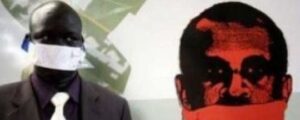South Sudanese journalists expressed mixed views on the state of press freedom ahead of World Press Freedom Day on May 3, with some mentioning slight progress while others citing persistent challenges.
Freelance journalist Michael Kenyi acknowledged slight progress, noting fewer arrests and detentions compared to previous years. “In the past, arrests were common, especially during routine reporting. That has decreased,” he told Radio Tamazuj on Wednesday.
However, he said interference in journalism remains an issue.
Print journalist Livingston Kidega, who began his career in 2014, said press freedom had improved due to dialogue between media, civil society, and security officials. “Back then, press freedom was nearly non-existent. There were constant clashes between journalists and authorities,” he said.
Suzan Emiliano from the state-run South Sudan Broadcasting Corporation (SSBC) also noted some gains, saying: “Today, there is more freedom of expression.”
But broadcast journalist Wol Mapel disagreed, saying press freedom continues to deteriorate in the country. “It is still hard for journalists to work without interference,” he said, citing harassment and arbitrary arrests.
South Sudan ranks poorly in the 2024 Reporters Without Borders (RSF) Press Freedom Index, classified as having a “very serious” situation. While the country’s constitution guarantees free expression, rights groups say this is not consistently upheld.
At least 12 journalists, including 11 South Sudanese and one foreign national, have been killed in South Sudan since 2012 with no perpetrators brought to justice, according to records from the Union of Journalists of South Sudan (UJOSS).
Edmund Yakani, head of the Community Empowerment for Progress Organization (CEPO), accused some government officials of exploiting some media outlets to spread misinformation and suppress dissent.
This year’s World Press Freedom Day theme focuses on artificial intelligence’s impact on journalism. The day also honors journalists killed while reporting.




